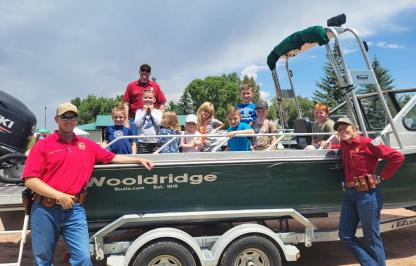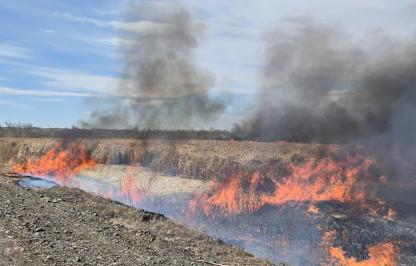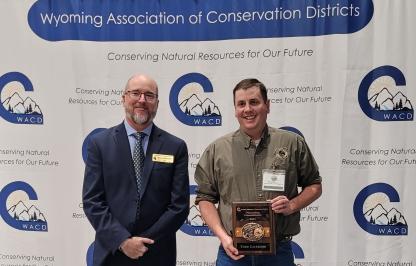The black-footed ferret population near Meeteetse, Wyo. is getting a boost. Last July, 35 black-footed ferrets were released on the Lazy BV and Pitchfork ranches by the Wyoming Game and Fish Department, in partnership with the U.S. Fish and Wildlife Service and other federal and private partners. Now biologists have found wild born kits at the site. Additionally, Game and Fish and partners released the first of 15 captive-born black-footed ferrets slated to bolster the population on the same historic landscape.
“We believe the initial ferret release at Meeteetse was extremely successful. Now with the discovery of wild-born ferrets, we are extremely excited and appreciative of the landowners and other groups who support these incredible animals,” said Zack Walker, Game and Fish statewide nongame bird and mammal program supervisor.
Black-footed ferrets are one of the most endangered mammals in North America. To work toward a self-sustaining ferret population near Meeteetse, the Game and Fish plan includes the initial large release, which occurred in July 2016, followed by two years of smaller releases to help supplement the population, the first of which began this August. The objective is to maintain at least 35 individuals at the recovery site.
To date, three wild-born kits have been discovered, and biologists suspect there are at least three litters identified. Surveys will continue until mid-September.
The kit was found with two adult females. The mother is thought to be Lucille, a ferret released last year named by the Hogg family in honor of the late Lucille Hogg. Her family owns the Lazy BV ranch and their dog brought home a dead ferret more than 35 years ago and confirmed the species was not extinct. “Ferrets are not a long-lived species, so it is important to have multiple generations of ferrets on the landscape. To have a connection to Lucille Hogg is exciting and fitting,” said Walker.
In preparation for this year’s release, Game and Fish has worked with the Bureau of Land Management and the U.S. Department of Agriculture’s Wildlife Services, the Association of Zoos and Aquariums, and the Smithsonian Institution to apply DeltaDust to the recovery area. This maintains a prey base for the ferrets by adding protection for prairie dogs to sylvatic plague.
During the survey, any young wild ferrets that are captured will be vaccinated for distemper and plague. Game and Fish will also be conducting a pilot study to determine the effectiveness of scent dogs in finding ferrets.
First black-footed ferrets born in the wild near Meeteetse in over 30 years
Wyoming Game and Fish (307) 777-4600



